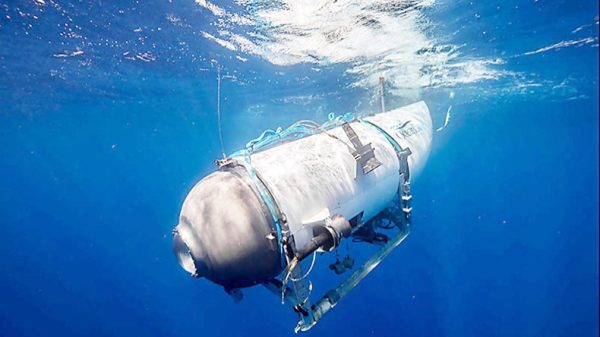The global hypocrisy of rescuing the Titan

- Update Time : Monday, June 26, 2023
- 58 Time View

RESCUE efforts to find and rescue the passengers of the Titan submersible who had ventured into the Atlantic Ocean to view the remains of the Titanic have, as of this writing, proven fruitless. The submersible, operated by OceanGate Expeditions, has been missing since Sunday, with five individuals on board including British billionaire Hamish Harding, OceanGate CEO Stockton Rush, a French navy veteran Paul-Henri Nargeolet, and Shahzada Dawood, a Pakistani businessman accompanied by his son Suleman.
The US Coast Guard has been engaged in an intensive search, alongside British and French teams and a Canadian ship, along with numerous other vessels and aircraft. The news coverage of this tragedy has been immense, piquing the interest of millions of people around the world who have been closely following this terrible saga.
At the same time, one must ask the obvious question: Why is such an extensive and expensive effort being made to rescue five people who took a voluntary leisure excursion when thousands of migrants are constantly drowning in their effort to escape hardship, poverty, and war? While some of the Titan’s passengers paid $250,000 for their doomed trip, migrants are often penniless and are escaping to western countries to find work. Why aren’t nations working together to help them and save them from dying at sea?
Amidst the coverage of the missing submersible, there is an even more tragic story that unfolds. On June 14, what is believed to be one of the deadliest refugee and migrant shipwrecks occurred off the Greek coast, potentially claiming the lives of around 800 individuals. Greek authorities had been aware of the vessel’s presence and early indications suggest that the response from the country’s coast guard was slow, despite numerous warning signs. This incident sheds light on Europe’s ongoing refugee crisis and highlights the indifference with which many European nations treat migrants who are desperately seeking safety on their shores. Remarkably, this significant news story has received limited attention in the media, with the coverage of the missing submersible overshadowing the tragedy of the shipwreck and the broader refugee crisis it represents.
Just this week, more than 30 migrants were feared dead after a small boat headed for Spain’s Canary Islands sank Wednesday. The Canary Islands off the coast of West Africa have become the main destination for migrants trying to reach Spain, with a smaller amount of migrants trying to cross the Mediterranean Sea to the Spanish mainland. The Atlantic migration route is one of the deadliest in the world. Attempts to reach the Canary Islands’ shores saw at least 559 people, including 22 children, die in 2022, according to data from the UN’s International Organization for Migration.
The Mediterranean Sea has also become a perilous route for migrants seeking a better life in Europe, with a tragic loss of life. Over the years, countless migrants have embarked on treacherous journeys, often packed onto overcrowded and unseaworthy vessels in their desperate attempt to reach European shores. The exact number of deaths is difficult to ascertain due to the clandestine nature of these journeys and the challenges in recording accurate data. However, according to estimates from various sources, including international organisations and NGOs, tens of thousands of migrants have lost their lives in the Mediterranean.
According to the UNHCR, the UN’s refugee agency, although the total number of migrants who embark upon the dangerous journey has fallen since the peak in 2015, the number of those who are killed during the dangerous endeavour has in fact risen.
‘[In 2021], some 3,231 were recorded as dead or missing at sea in the Mediterranean and the northwest African routes, with 1,881 in 2020, 1,510 in 2019, and more than 2,277 for 2018,’ the UNHCR reported.
These tragic deaths highlight the urgent need for comprehensive and humane solutions to address the underlying causes of migration and provide safer alternatives for those seeking refuge and a better future. Efforts should be focused on addressing the root causes of migration, improving search and rescue operations, combating human trafficking networks, and establishing legal pathways for migration to reduce the risks faced by those embarking on these dangerous journeys.
While every life is valuable, countries must often make tough decisions. From a purely statistical and numbers perspective, it makes more sense to try and rescue a boatload of people from drowning than it is to try and find five people in a tiny submersible in an area twice as large as the US state of Connecticut.
CounterPunch.org, June 23. Chloe Atkinson is a climate change activist and consultant on global climate affairs.















